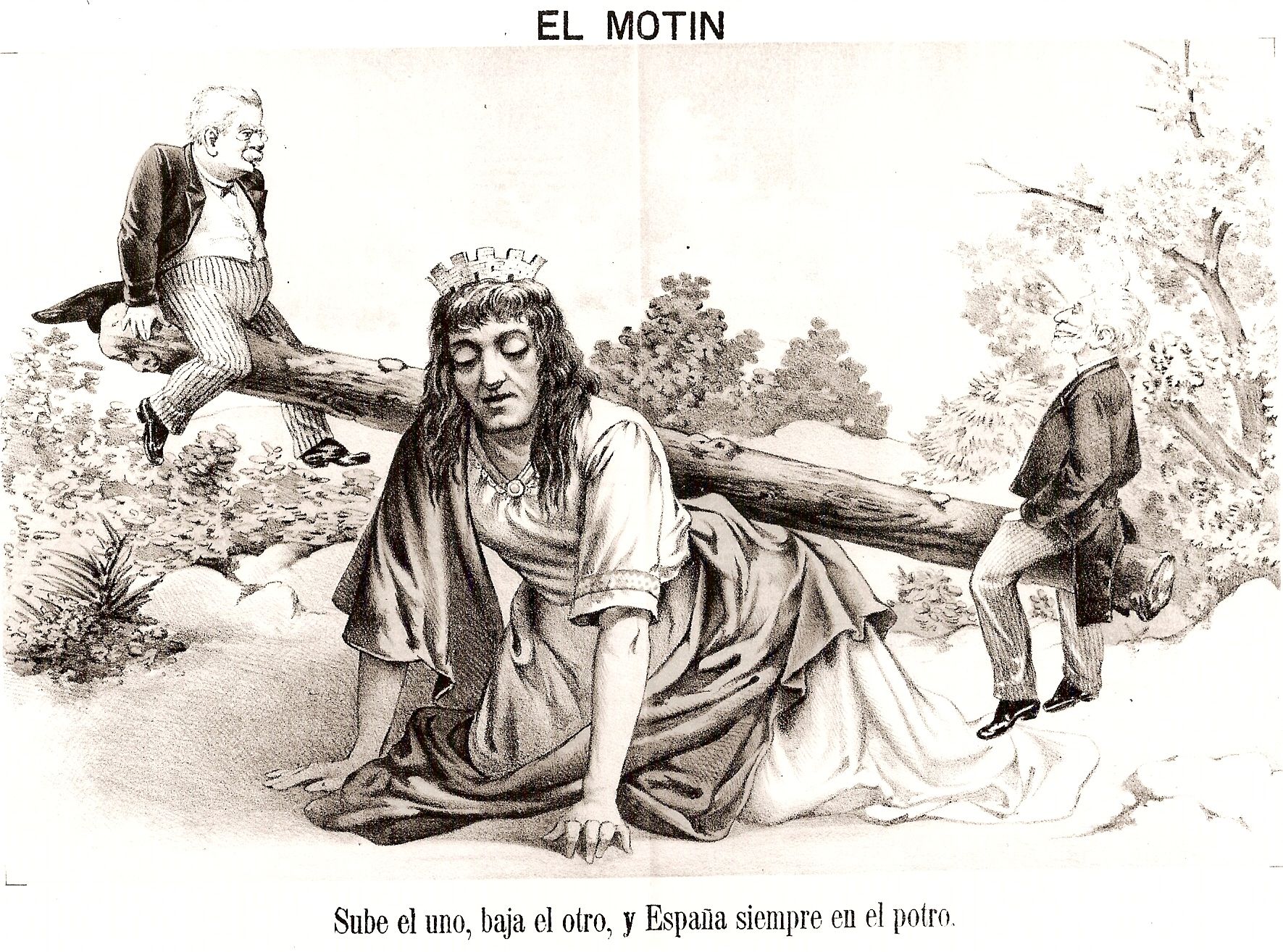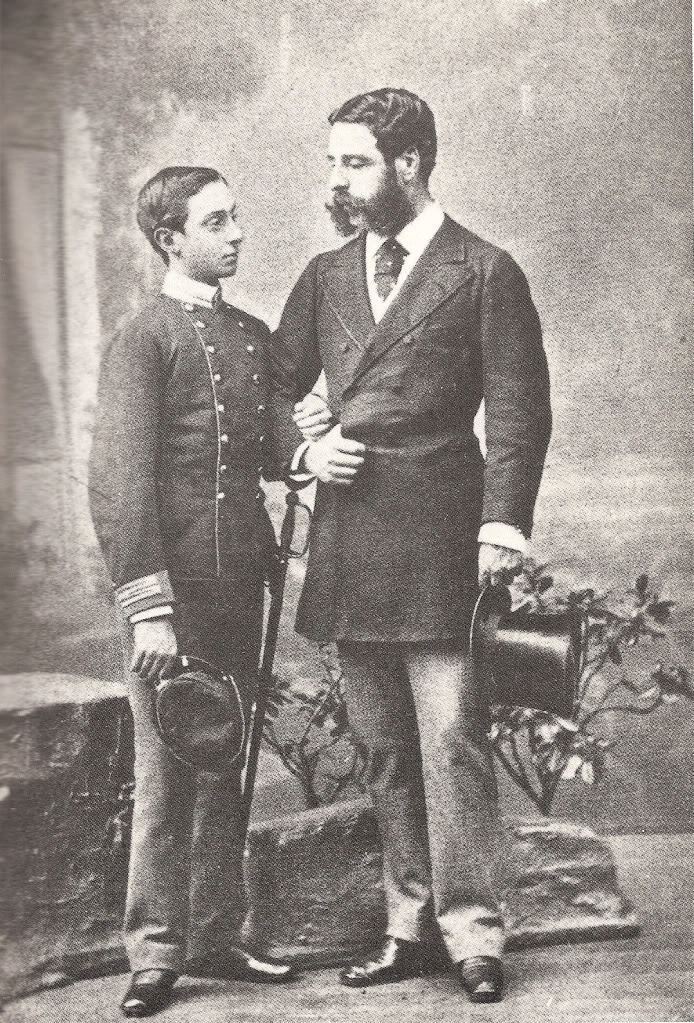|
Pact Of El Pardo
The Pact of El Pardo was an informal agreement which supposedly took place on 24 November, 1885, in the face of King Alfonso XII's imminent death. It established a system of party alternation that lasted until General Primo de Rivera's '' coup'' in 1923. The pact was signed in the Royal Palace of El Pardo. Historical context The pact was signed between Antonio Cánovas del Castillo, leader of the Conservative Party, and Práxedes Mateo Sagasta, leader of the Liberal Party. Both political parties dominated Spanish politics during the Restoration period. The aim of the pact was to provide stability to the regime, which was thought to be in jeopardy due to the proximity of the King's death. The pact established a system of alternance for the two major political parties, effectively ensuring that both would "take turns" governing the country within a democratic framework. This was achieved through the use of ''caciques'', powerful individuals who greatly influenced the vote around ... [...More Info...] [...Related Items...] OR: [Wikipedia] [Google] [Baidu] |
Alfonso XII Of Spain
Alfonso XII (Alfonso Francisco de Asís Fernando Pío Juan María de la Concepción Gregorio Pelayo; 28 November 185725 November 1885), also known as El Pacificador or the Peacemaker, was King of Spain from 29 December 1874 to his death in 1885. After a revolution that deposed his mother Isabella II from the throne in 1868, Alfonso studied in Austria and France. His mother abdicated in his favour in 1870, and he returned to Spain as king in 1874 following a military coup against the First Republic. Alfonso died aged 27 in 1885, and was succeeded by his son, Alfonso XIII, who was born the following year. He is the most recent monarch of Spain to have died while on the throne. Political background, early life and paternity Alfonso was born in Madrid as the eldest son of Queen Isabella II on 28 November 1857. His official father, Isabella's husband Francisco de Asís, has been generally viewed as effeminate, impotent or homosexual, leading writers to question his biological pater ... [...More Info...] [...Related Items...] OR: [Wikipedia] [Google] [Baidu] |
Restoration (Spain)
The Restoration ( es, link=no, Restauración), or Bourbon Restoration (Spanish: ''Restauración borbónica''), is the name given to the period that began on 29 December 1874—after a coup d'état by General Arsenio Martínez Campos ended the First Spanish Republic and restored the monarchy under Alfonso XII—and ended on 14 April 1931 with the proclamation of the Second Spanish Republic. After almost a century of political instability and many civil wars, the aim of the Restoration was to create a new political system, which ensured stability by the practice of '' turnismo''. This was the deliberate rotation of the Liberal and Conservative parties in the government, often achieved through electoral fraud. Opposition to the system came from Republicans, Socialists, Anarchists, Basque and Catalan nationalists, and Carlists. Alfonso XII and the Regency of Maria Christina (1874–1898) The '' pronunciamiento'' by Martínez Campos established Alfonso XII as king, marking the e ... [...More Info...] [...Related Items...] OR: [Wikipedia] [Google] [Baidu] |
Political History Of Spain
Politics (from , ) is the set of activities that are associated with making decisions in groups, or other forms of power relations among individuals, such as the distribution of resources or status. The branch of social science that studies politics and government is referred to as political science. It may be used positively in the context of a "political solution" which is compromising and nonviolent, or descriptively as "the art or science of government", but also often carries a negative connotation.. The concept has been defined in various ways, and different approaches have fundamentally differing views on whether it should be used extensively or limitedly, empirically or normatively, and on whether conflict or co-operation is more essential to it. A variety of methods are deployed in politics, which include promoting one's own political views among people, negotiation with other political subjects, making laws, and exercising internal and external force, including wa ... [...More Info...] [...Related Items...] OR: [Wikipedia] [Google] [Baidu] |
1880s In Spain
Year 188 (CLXXXVIII) was a leap year starting on Monday of the Julian calendar. At the time, it was known in the Roman Empire as the Year of the Consulship of Fuscianus and Silanus (or, less frequently, year 941 ''Ab urbe condita''). The denomination 188 for this year has been used since the early medieval period, when the Anno Domini calendar era became the prevalent method in Europe for naming years. Events By place Roman Empire * Publius Helvius Pertinax becomes pro-consul of Africa from 188 to 189. Japan * Queen Himiko (or Shingi Waō) begins her reign in Japan (until 248). Births * April 4 – Caracalla (or Antoninus), Roman emperor (d. 217) * Lu Ji (or Gongji), Chinese official and politician (d. 219) * Sun Shao, Chinese general of the Eastern Wu state (d. 241) Deaths * March 17 – Julian, pope and patriarch of Alexandria * Fa Zhen (or Gaoqing), Chinese scholar (b. AD 100) * Lucius Antistius Burrus, Roman politician (executed) * Ma Xiang ... [...More Info...] [...Related Items...] OR: [Wikipedia] [Google] [Baidu] |


